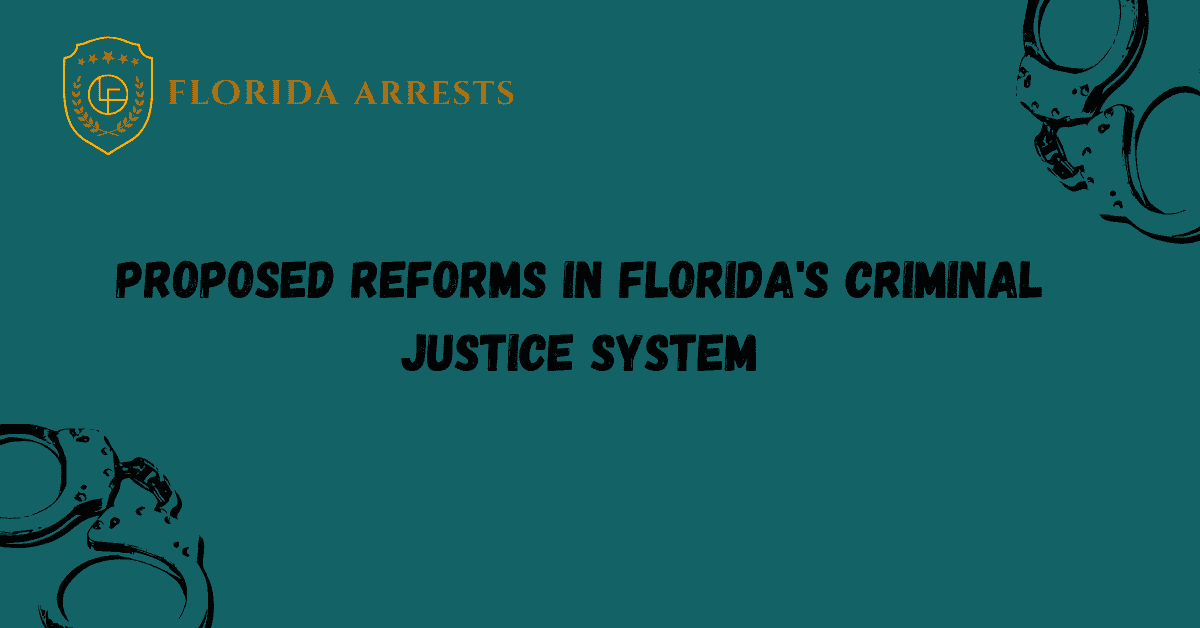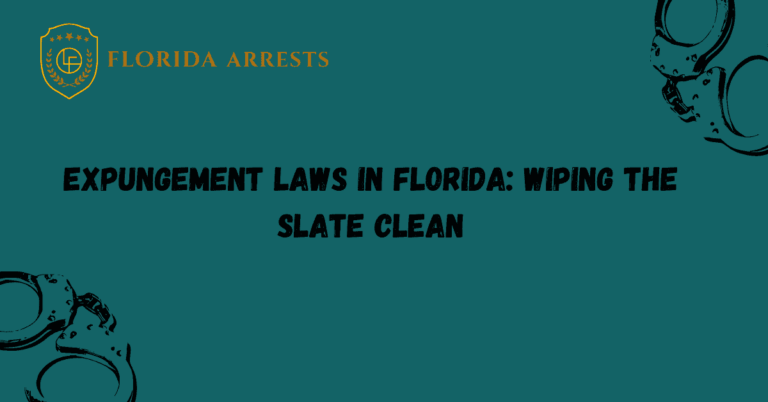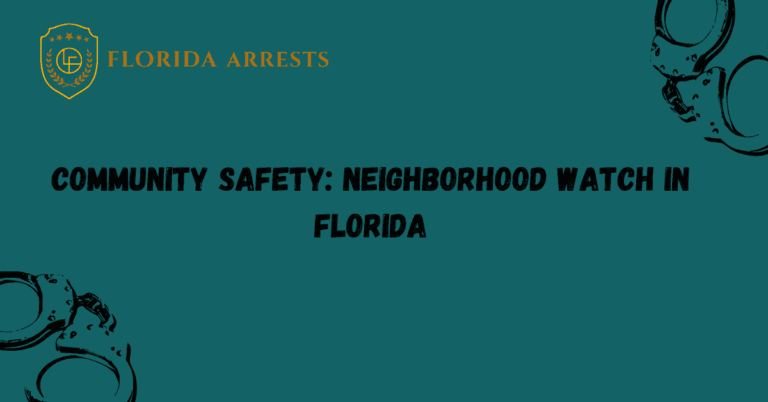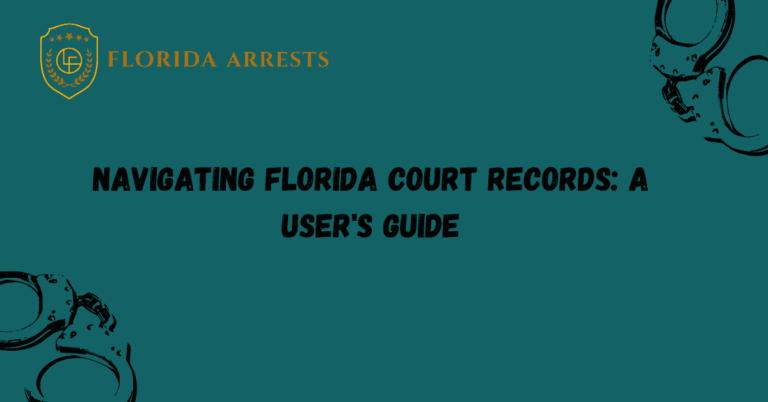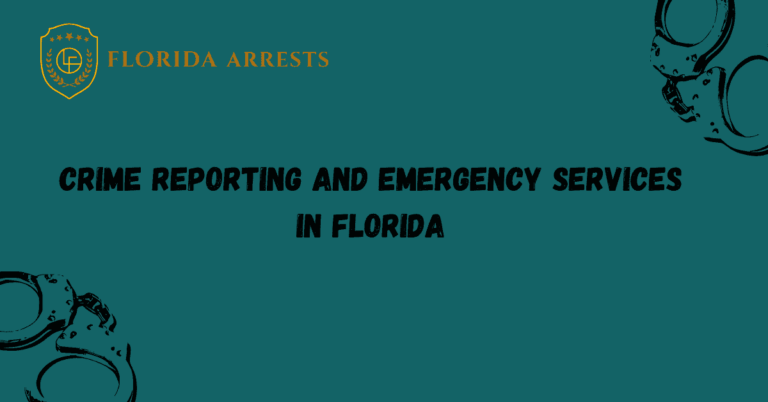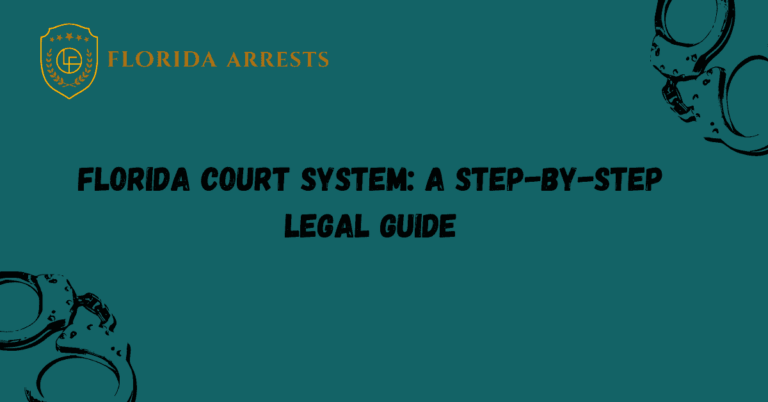Proposed Reforms in Florida’s Criminal Justice System
Florida’s criminal justice system has long been a topic of debate and controversy. With high incarceration rates and a lack of focus on rehabilitation, many believe that it is time for change. Proposed reforms aim to address these issues and create a more fair and effective system.
One key area of focus is reducing the reliance on incarceration for non-violent offenses. Instead of locking up individuals for minor drug offenses or other low-level crimes, proponents of reform suggest alternative sentencing options such as probation, community service, or drug treatment programs. By diverting individuals away from prison and towards rehabilitative solutions, the hope is to reduce recidivism rates and give offenders a chance to turn their lives around.
Current Issues in Florida’s Criminal Justice System
In recent years, Florida’s criminal justice system has come under scrutiny for its high incarceration rates and a lack of focus on rehabilitation. These issues have sparked debate and controversy, with many calling for reform. This article will explore some proposed solutions to address these concerns and create a more fair and effective system.
Reducing Reliance on Incarceration for Non-Violent Offenses
One key area of focus for criminal justice reform in Florida is reducing the reliance on incarceration for non-violent offenses. Currently, individuals convicted of minor drug offenses or other low-level crimes often face prison sentences. However, proponents of reform argue that alternative sentencing options such as probation, community service, or drug treatment programs would be more effective in addressing these offenses.
Benefits of Alternative Sentencing
By diverting individuals away from prison and towards rehabilitative solutions, the hope is to achieve several benefits. Firstly, it aims to reduce recidivism rates, as individuals who receive appropriate treatment and support are less likely to reoffend. Additionally, alternative sentencing options can provide offenders with the opportunity to address the root causes of their criminal behavior, such as addiction or mental health issues.
Creating a More Fair and Effective System
Another goal of criminal justice reform in Florida is to create a more fair and effective system overall. By focusing on rehabilitation rather than punishment, the justice system can better serve the needs of both offenders and the community. Alternative sentencing options allow for tailored approaches to individual cases, taking into account factors such as the severity of the offense, the offender’s history, and their potential for rehabilitation.
Addressing Racial Disparities
Racial disparities within the criminal justice system have also been a significant concern. Studies have shown that minority communities are disproportionately affected by harsh sentencing and incarceration rates. By implementing alternative sentencing options, the hope is to reduce these disparities and promote a more equitable system.
Collaboration and Support
Implementing these reforms will require collaboration between lawmakers, law enforcement agencies, and community organizations. It is crucial to ensure that the necessary resources and support systems are in place to effectively implement alternative sentencing options. This includes funding for treatment programs, probation services, and community support networks.
The Path to Change
While change may not happen overnight, the proposed reforms have the potential to significantly improve Florida’s criminal justice system. By reducing reliance on incarceration for non-violent offenses, focusing on rehabilitation, and addressing disparities, the hope is to create a system that not only punishes but also rehabilitates, ultimately leading to safer communities and a more just society.
FAQs
What are the proposed reforms in Florida’s criminal justice system?
The proposed reforms aim to address various aspects of the criminal justice system in Florida, including sentencing policies, bail and pretrial procedures, rehabilitation programs, and law enforcement practices. These reforms seek to create a more just and equitable system that prioritizes fairness, transparency, and rehabilitation.
How will these reforms benefit the criminal justice system?
These reforms aim to address the issues and challenges faced by the current criminal justice system in Florida. By implementing these changes, it is expected that the system will become more efficient, fair, and effective in delivering justice.
What are the potential challenges in implementing these reforms?
While the proposed reforms have the potential to bring positive changes, there may also be challenges in their implementation. Some of these challenges may include resistance from stakeholders, budget constraints, and the need for legislative support.
What are the key goals of these proposed reforms?
The proposed reforms aim to achieve several key goals, such as reducing recidivism rates, addressing racial disparities in the criminal justice system, improving access to rehabilitation programs, and enhancing community safety.
How will these reforms impact individuals involved in the criminal justice system?
These reforms have the potential to significantly impact individuals involved in the criminal justice system. They may lead to fairer sentencing, increased access to diversion programs, improved rehabilitation opportunities, and ultimately better outcomes for both offenders and the community.
What is the timeline for implementing these proposed reforms?
The timeline for implementing these proposed reforms may vary depending on various factors, such as legislative approval, funding availability, and stakeholder collaboration. It is important to consider the complexities involved in enacting these changes and ensure a thorough and well-planned implementation process.

